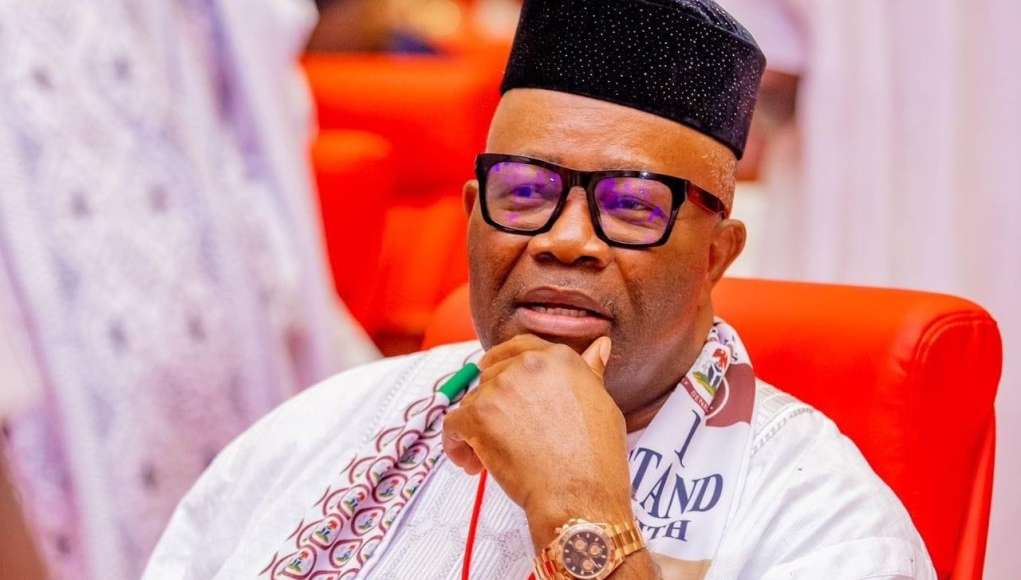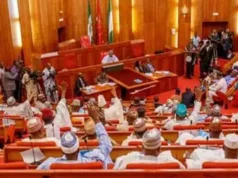Anger has followed the National Assembly’s decision to set aside N70 billion for its members from the N819 billion federal supplementary budget authorized by the assembly last week.
The parliamentarians stated that the N70 billion would be used to improve “the working conditions of National Assembly members.”
However, many Nigerians have criticized the N70 billion budgetary provision for MPs as insensitive, given that the majority of Nigerians are experiencing economic hardship as a result of the elimination of gasoline subsidies.
SERAP requested them to “repeal the 2022 Supplementary Appropriation Act to reduce the budget for the National Assembly by N110bn, reflect current economic realities in the country, and address the impact of the removal of fuel subsidy on the over 137 million poor Nigerians.”
It told the National Assembly seven days to reverse its decision, threatening to take the matter to court if its demand was not met.
Human rights campaigner and Senior Advocate of Nigeria, Femi Falana, called the decision heartless and a violation of the country’s constitution.
Falana in a statement on Sunday, said, “Out of sheer insensitivity coupled with impunity, the members of the National Assembly, regardless of political affiliation, conspired to breach the relevant provisions of the Constitution of the Federal Republic of Nigeria, 1999 by padding the Supplementary Appropriation Bill, 2023 to provide the so-called palliative of N70bn for 306 newly-elected members.
“While the masses of Nigeria are groaning under the excruciating economic pains unleashed on them by the ruling class, the National Assembly has awarded N228.7m to each of the newly elected legislators. As if that is not enough, the members of the National Assembly have earmarked N40bn to purchase 465 Sports Utility Vehicles and bulletproof cars for principal officials and members. However, the legislators approved the sum of N500bn for 12 million indigent people in a country where the National Bureau of Statistics has said that ‘62.9 percent of people (133 million) are multidimensionally poor’.”
Similarly, the National Chairman Centre for Anti-Corruption and Open Leadership, Debo Adeniran, described the N70bn as insensitive.
“Instead of increasing our suffering, they should actually put that amount of money into the socio-economic activities of Nigerian people and give soft loans to those that have been identified as doing legitimate business,” Adeniran said.
The presidential candidate of the African Action Congress in the 2023 elections, Omoyele Sowore, also condemned N70bn palliative.
He said, “Palliatives will not solve any poverty, it is clear that these palliatives are designed as political welfare for the top one percent of already over-fed members of the Nigerian elite, not the Nigerian people.”
In the same vein, the Director, Take It Back Movement, Juwon Sanyaoulu, in a tweet via @AyowoleSanyaolu, said President Bola Tinubu-led government was treating Nigeria like a conquered territory.
Sanyaolu said, “Tinubu awards N70bn as palliatives to National Assembly members, who, by the way, are negotiating a further increase in their already outrageous salaries, but plans to distribute less than N100bn to 12 million Nigerians as palliative for the unconscionable hardship occasioned by subsidy removal on fuel.
“The Tinubu regime is treating Nigeria like his conquered territory and its people like a conquered lot. In no distant time, we will show him why no Nigerian leader has yet to successfully conquer the Nigerian people.”
However, the Senate, in a statement on Sunday by its Chairman, Committee on Media and Public Affairs, Senator Yemi Adaramodu, defended the N70bn allocation and called on Nigerians to see their National Assembly as a partner in progress.
Adaramodu said, “Suffice to say that the passage is part of the absolute constitutional duty of the Senate. We would, therefore, not wish to take issues with the mischief and misrepresentation that a portion of the just passed Amendment Act that appropriated N70bn was a ‘gift’ to the legislators.”
Adaramodu stressed that “a visit to the suites, offices, and the general structures of the National Assembly complex would reveal yawning and the need for exigent attention.
“Many senators had to bring their chairs, tables, and electronics and in many cases, do sundry repairs.
“The so-much-debated allocation will not be paid to any legislator. This will be managed by the National Assembly Bureaucracy. It’s pertinent to also note that the National Assembly complex does not house only the legislators. There are thousands of workers and service providers, whose working environments need a facelift, and with necessary tools.
“Since the Assembly complex is not owned by legislators, who are merely political birds of passage, such allocation cannot be termed by anyone as a palliative to the legislators.”










